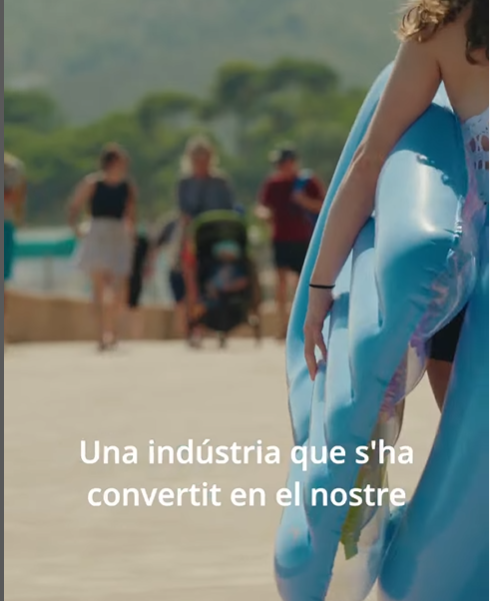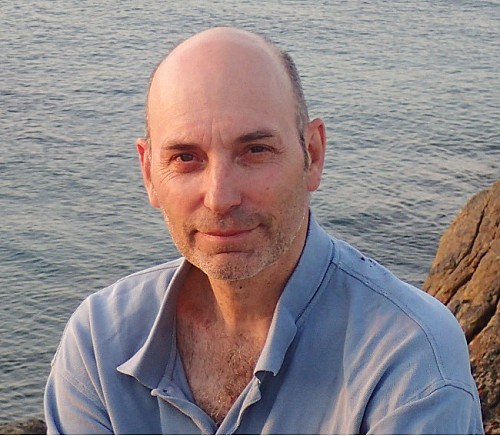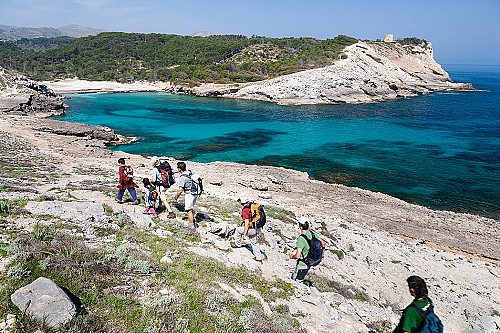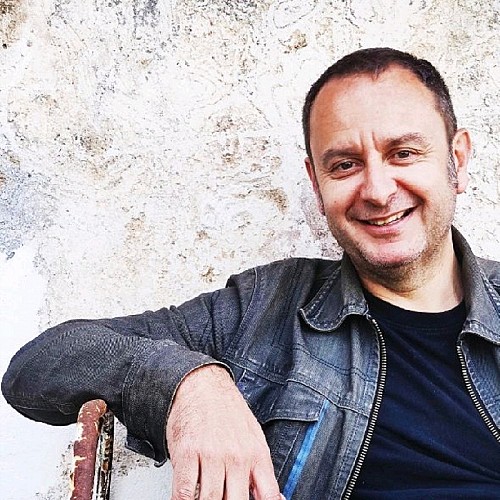We are launching a video to remind the tourism sector of the importance of a well-preserved sea
Published 06.03.2025
Share

Coinciding with the ITB, we want to remind people that the future of tourism in the Balearic Islands depends directly on clean waters full of life.
The future and a large part of the benefits of tourism in the Balearic Islands depend on clean waters and coasts full of life. We are asking the tourism sector to show greater commitment to marine conservation. We propose that companies that benefit from tourism get involved in marine and coastal protection, because a healthy sea in excellent condition is not only essential for the survival of this industry, but also for the well-being of the public.
On the occasion of the ITB, we have published a video clip calling for the profits from tourism to be used to protect the sea. The tourism industry depends directly on the good condition of marine ecosystems. It is enough to walk around the stands at tourism fairs every year to see how important the sea and the coast are to their success. The sea provides tourism with a cascade of benefits in the form of opportunities for leisure, recreation, climate regulation, and coastal protection. But, paradoxically, tourism invests very little in its protection and conservation.
Aniol Esteban, director of Marilles Foundation: ‘The big companies that benefit from tourism seem to be in hibernation in terms of their involvement in marine conservation. We hope that, now that spring is coming, they will wake up and take action.’
At Marilles, we believe that the sector should get involved in issues such expanding and improving marine protected areas, conserving habitats and species, and supporting local and sustainable fishing.
Part of the tourism sector has already demonstrated its commitment to conservation and its willingness to move forward in this direction. This is demonstrated by the large number of companies that have supported the Balearic Blue Deal and funded some projects. Now, they have to go one step further and put their weight and influence at the service of marine conservation.
Aniol Esteban, director of Marilles Foundation: ‘The big companies that benefit from tourism seem to be in hibernation in terms of their involvement in marine conservation. We hope that, now that spring is coming, they will wake up and take action.’
A natural capital accounting system
During the ITB, it is also good to remember the need to start making visible the social and environmental costs associated with tourism. These are often difficult to monetise. Tourism is possible thanks to the good state of the natural environment. Therefore, the erosion of this environment puts at risk the future of tourism and the benefits it generates. Therefore, investing in the conservation and recovery of ecosystems will improve the prospects for tourism, even more so in a context of uncertainty due to climate change and loss of biodiversity.
One of the measures that could be promoted by the tourism sector, and which is included in the Balearic Blue Deal, is the implementation of a natural capital accounting system that allows us to visualise the state of our natural environment and how this affects tourism activity.
MORE INFORMATION:
An economic study carried out by Marilles in the Levante Marine Reserve in Mallorca has already shown that the tourism sector captures two-thirds of the annual benefits provided by the reserve. And everything indicates that the same situation is repeated around the Spanish coastline.




